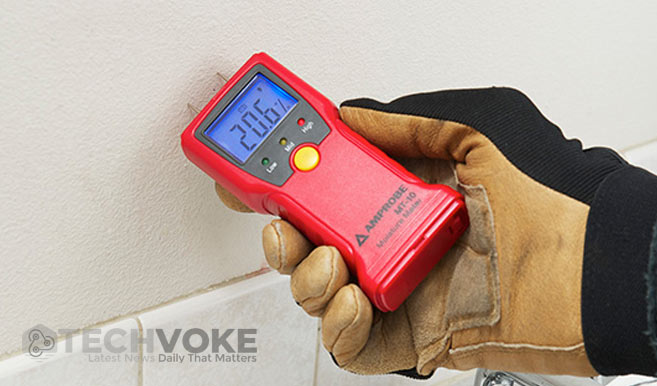Moisture meters are critical tools across industries ranging from construction to farming and everything in between. However, while these devices are fantastic for quickly and accurately determining the moisture levels within a material, there are some instances where another tool might be a better choice. Luckily you can buy moisture meters and any alternatives at a reputable supplier like RS Components.
So, let’s dive into when you should NOT use moisture meters and why.
Determining moisture levels deep within a concrete slab
Pinless concrete moisture meters feature a sensor pad that determines the moisture levels in a concrete surface without penetrating it. While these handy devices are great for preliminary measurements (i.e., a quick, non-destructive check over), they’re not the best option for assessing the moisture levels in a thick concrete slab.
Rather, the standard way to measure moisture levels in a concrete slab is with drilling equipment and a thermo-hygrometer, which is a heavy-duty tool for measuring humidity in concrete installations.
Essentially, the best course of action is to use a concrete moisture meter in combination with drilling equipment and a thermo-hygrometer to achieve the most accurate results.
When measuring the wrong material
You should also avoid using the wrong type of moisture meter to measure a given material.
Why?
Because each type of moisture meter is intended for a certain purpose. For example, wood moisture meters are specifically designed for measuring the moisture levels in products like timber frames and wooden furniture. In contrast, soil moisture meters are designed to measure the dampness of compost, vegetation, and soil.
So, if you run a garden center, you won’t want to use a concrete moisture meter to determine whether or not your plants need water! Rather, choose a purpose-made soil moisture meter—these devices are guaranteed not to disrupt the soil or damage your plants.
When checking for mould
You might be wondering if moisture meters are suitable for detecting mould within building materials. Unfortunately, the answer is no—although moisture meters still boast some benefits when it comes to mould detection.
While moisture meters can indicate areas with a higher risk of mould growth, they can’t determine its presence directly. A moisture analyzer is a better choice of tool for mould inspections.
Types of Moisture Meters
- Pin Moisture Meters
- Pinless Moisture Meters
- Wood Moisture Meter
- Concrete Moisture Meter
- Soil Moisture Meter
- Plants Moisture Meter
- Grain Moisture Meter
- Caravans Moisture Meters
- Walls Moisture Meters
A final summary
Now, let’s quickly run through what we’ve learned. Firstly, moisture meters aren’t the best option for measuring moisture levels within a thick concrete slab. While you can use a concrete moisture meter for non-destructive preliminary testing, you’ll need to drill into the slab to obtain a truly quantifiable value.
Next, not all moisture meters are made the same. Rather, many are designed for measuring particular materials—so, for example, using a wood moisture meter isn’t the best option for measuring soil!
Finally, moisture meters aren’t able to detect the presence of mould in building materials—so they’re not the best choice for home inspections. However, moisture meters can identify a higher risk of mould growth in a given material.
Outside of the situations we’ve mentioned here, moisture meters are the best way to quickly and accurately determine the moisture levels in a given material.


